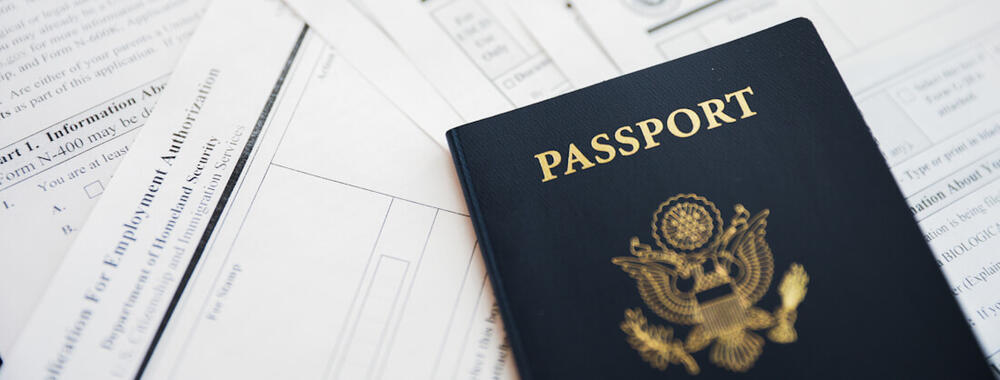Expats moving to Finland should prepare themselves for life in the easternmost country of the Nordic region and one of the largest countries in Europe, not to mention one of its most picturesque. Travellers and expats alike are attracted to the country’s gorgeous scenery, cleanliness, efficient economy and famously happy population.
As Finland’s capital and busiest port, Helsinki spills across a group of Baltic islands and promontories, and its smart new suburbs extend into the verdant surrounding forests and countryside. The city is one of Europe’s most modern and culturally progressive places, yet it remains in touch with an intriguing history that stretches back over centuries.
Living in Finland as an expat
It may take expats living in Finland a while to adapt to cultural differences. The general perception is that Finns are reserved and quiet people, although this isn’t always the case with younger generations. Small talk, a skill which Finns are notoriously lacking, is sometimes regarded with suspicion. Expats would do well to learn Finnish before relocating to the country, but English is also widely spoken.
Finland scores highly in international rankings in many categories, not just in the GDP stakes but also in social support, generosity and freedom of choice. The country is said to be one of the happiest and most well-governed in the world, and new arrivals may be pleasantly surprised at how easy it is to adapt.
The most important factor affecting housing costs in Finland is the shortage of spacious accommodation available in metropolitan areas. This often forces families with children to live in the outlying municipalities or further afield, resulting in long and expensive commutes, increased dependence on cars and limited access to services.
Cost of living in Finland
The cost of living in Finland is undeniably high, even by European standards. Expats from areas of the world where they may have been used to a lower cost of living will find the higher prices a shock and something difficult to adjust to. It’s therefore worth considering the cost of things before negotiating for a suitable salary with prospective employers.
While public transport in Finland is well-organised and efficient, it can be costly. Expats are encouraged to secure discount cards to access savings or consider healthier and low-cost options like cycling and walking.
Families and children in Finland
Education is mandatory in Finland and school attendance is compulsory for all children, including foreign citizens who reside permanently in Finland. Most major cities in Finland have good quality local and international schools, but these are likely to have a waiting list, so it is vital to start looking for a school as early as possible.
Healthcare in Finland is mainly provided based on residency and is primarily financed with general tax revenues. There are both public and private sector providers. Primary health services are generally the responsibility of individual municipalities and are provided through local health centres.
Thanks to Finland’s beautiful and abundant natural landscape, parents will find themselves enjoying the outdoors much more with their children. The country also has a strong sauna culture for the winter months, but children will get the opportunity to explore museums, zoos and aquariums.
Climate in Finland
Considering how far north Finland is, the country has a milder climate than one might expect. In general, Finland has an extreme swing between summer and winter, with bitterly cold winters when temperatures drop well below freezing in many areas, particularly in northern Lapland. Summer, by contrast, can be surprisingly warm. In the far north, the sun does not set for about 73 days during summer, while in winter, the sun remains below the horizon for a 51-day stretch: a feature of life in Finland that expats often struggle to come to terms with.
Overall, though, expats moving to Finland who are willing to make an effort to adapt to local culture will find that life in Finland offers them a unique insight into Scandinavian and European lifestyles.
Fast facts
Population: Around 5.6 million
Capital city: Helsinki
Neighbouring countries: Finland is bordered by Sweden to the west, Norway to the north and Russia to the east.
Geography: Finland’s terrain is mostly flat, with around 70 percent of the country covered in dense forest. In Lapland, to the north, are low mountains, and further south lies the Åland archipelago. Eastern Finland is littered with thousands of lakes.
Political system: Unitary parliamentary republic
Major religions: Christianity
Main language: Finnish as well as Swedish and Sámi, a recognised regional language
Money: The currency used in Finland is the Euro (EUR), which can be divided into 100 cents. ATMs and card facilities are readily available throughout the country’s urban centres.
Time: GMT+2 (GMT +3 between March and October.)
Electricity: 230V, 50Hz. Plugs with two round pins are used throughout the country.
Internet domain: .fi
International dialling code: +358
Emergency contacts: 112
Transport: Finns drive on the right-hand side of the road, and the country boasts an enthusiastic car culture. Major centres such as Helsinki have excellent public transport systems, and inter-city trains are efficient and accessible.









